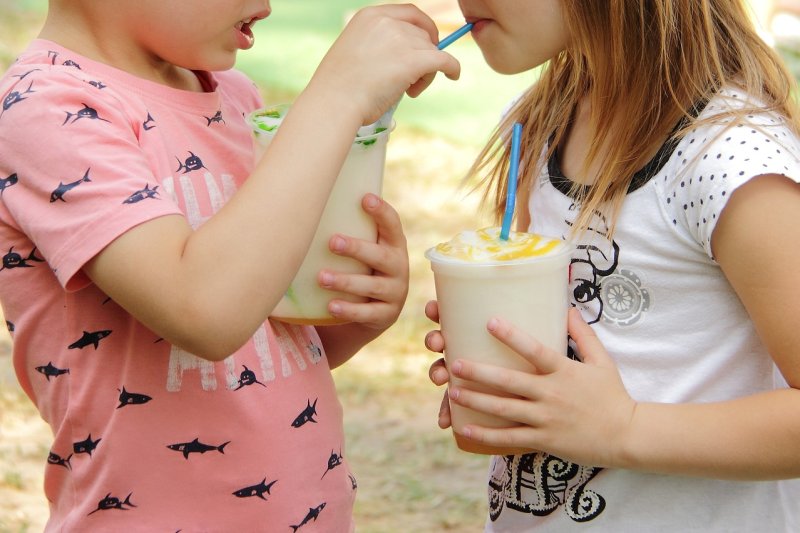[ad_1]
May possibly 5 (UPI) — Most meals- and drink-related articles posted by “influencers” on social media fails to meet the Earth Health and fitness Organization’s standards for advertising of these goods to youngsters, in accordance to a review introduced Thursday.
Based on an investigation of content material posted by German-language influencers on TikTok, Instagram and YouTube, 75% of the highlighted food stuff and beverages have been high in salt, excess fat or sugar, the facts, presented Thursday in the course of the European Congress on Being overweight in Maastricht, Netherlands, confirmed.
Simply because of these qualities, producers and distributors of these goods would not be permitted to market place them to young children in both Germany or Austria, in which most of the influencers are based, the scientists claimed.
The “the greater part” of posts had been not labeled as commercials for the food stuff and beverage goods mentioned, they stated.
“How can we be expecting our young children to consume healthily when content material on social media is skewed to boost food items superior in fat, salt and sugar,” analyze co-creator Maria Wakolbinger claimed in a push launch.
“Influencers have enormous power around what younger folks come to feel is suitable and appealing [and] our findings suggest that most of the time, influencers are not flagging when their posts are [advertisements],” said Wakolbinger, a general public health researcher at the College of Vienna in Austria.
She and her colleagues urged governments to get ways to regulate meals and beverage advertising articles on social media.
In 2015, the WHO released the “Kid’s Code,” which created recommendations to member states about expectations for meals and beverage advertising and marketing for small children age 12 and more youthful.
The aim of the requirements is to ensure young persons are not exposed only to promoting for harmful food items and beverage selections, the company mentioned.
They ended up crafted in reaction to the expanding international being overweight crisis, which has found some 40 million children age 5 and more youthful globally fulfill the criteria for becoming seriously obese, in accordance to the WHO.
Up to 20% of children and adolescents age 19 and more youthful in the United States satisfy the criteria for obesity, the Centers for Disorder Control and Avoidance estimates.
For this analyze, the scientists analyzed the meals, treats and beverages that appeared in posts and movies by six of the most common German-speaking influencers with youngsters ages 13 to 17, who experienced a combined complete of much more than 35 million followers or subscribers.
The influencers, who posted on TikTok, YouTube and Instagram, had been chosen based mostly on getting a lot more than 100,000 subscribers or followers on all a few platforms as well as their reputation with younger people and German-language articles, the researchers mentioned.
The scientists analyzed the final 20 movies or posts uploaded by each and every influencer in advance of Could 1, 2021.
Of the 364 videos and posts — or virtually 13 hours of footage — 1-quarter featured meals or beverages, for a whole of 409 products and solutions, the facts confirmed.
Based on the WHO nutrient recommendations, 75% of the showcased meals and drinks were considered harmful and ought to not be marketed to youngsters, while only 17% could be, the researchers explained.
The dietary high-quality of the remaining 8% could not be determined, they said.
Chocolate and sweets had been the most commonly posted about food stuff, accounting for just about a single-quarter of posts, whilst prepared-built usefulness meals accounted for 9%.
A lot more than half, or 53%, of the products and solutions have been described and presented positively by the influencers and 73% of them have been demonstrated getting eaten by the influencers on their own.
In 60% of the video clips, the product was stated in the online video description, with 19% citing the brand name title or company, the researchers reported.
Internet marketing of harmful food and beverage goods to children has been joined with unhealthy diet program alternatives and fat obtain amongst younger folks, prior investigation suggests.
At present, the United States has no polices limiting social media marketing and advertising of meals and beverages, nevertheless the food items marketplace does have voluntary expectations in spot.
“We should crack down on social media and challenge the part of influencers in junk foods internet marketing,” study co-writer Eva Winzer mentioned in a push launch.
“In most countries, there are no limits on the marketing of unhealthy foods on internet websites, social media or cellular purposes,” said Winzer, a publish-doctoral researcher at the University of Vienna.
[ad_2]
Resource connection
